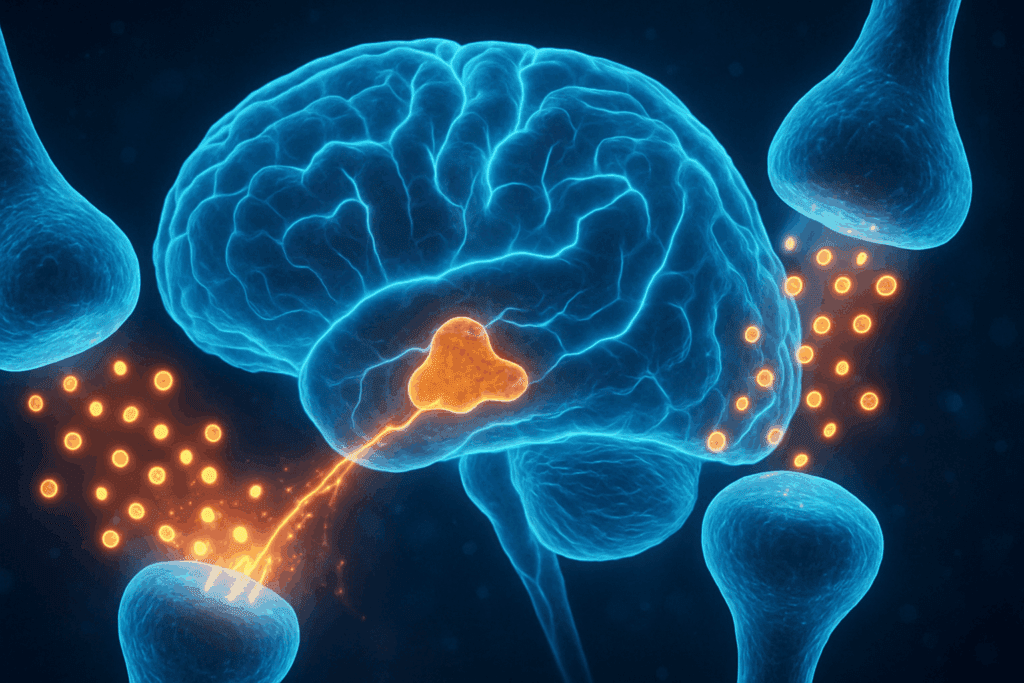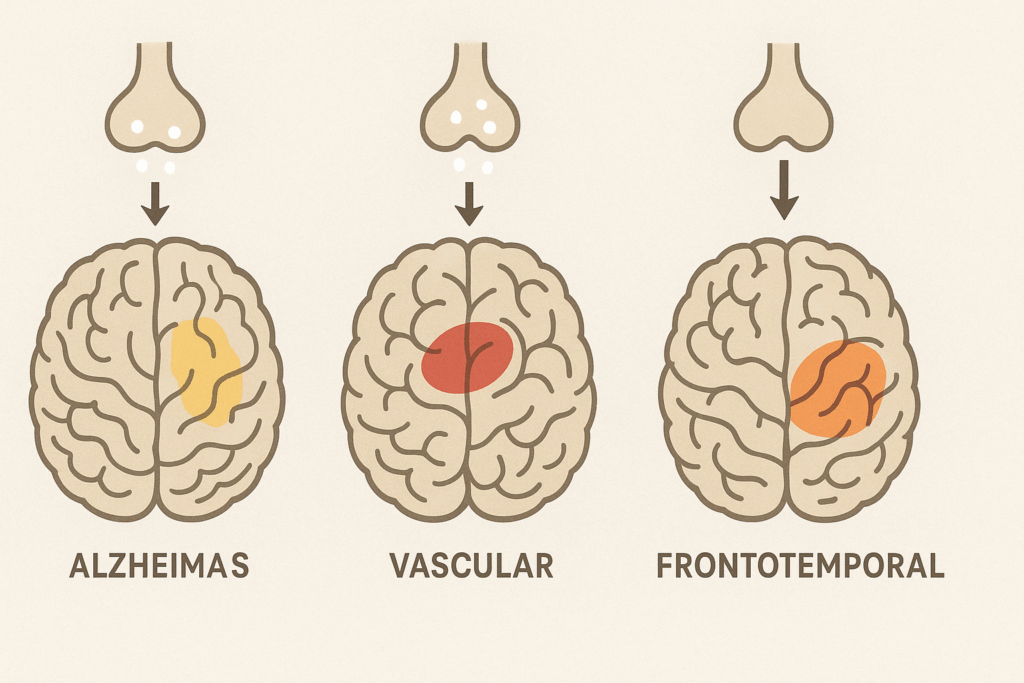As the global population ages, interest in treatments that may alleviate the symptoms of dementia has surged. Among the most widely discussed pharmaceutical interventions is donepezil, commonly marketed under the brand name Aricept. Known primarily for its use in Alzheimer’s disease, this drug has become a focal point of scientific and public curiosity. The central question that emerges is whether donepezil really helps with dementia, particularly when it comes to memory, focus, and slowing cognitive decline. Unpacking this topic requires a nuanced exploration of how donepezil works, its clinical effectiveness, and the broader implications of its use.
You may also like: How to Choose the Best Brain Supplements for Adults: Science-Backed Ingredients That Support Focus, Memory, and Mental Clarity
Understanding How Donepezil Works in the Brain
Donepezil is classified as a cholinesterase inhibitor, which means it works by preventing the breakdown of acetylcholine, a neurotransmitter vital for learning and memory. In individuals with dementia, especially those with Alzheimer’s disease, levels of acetylcholine are significantly reduced. This neurotransmitter deficit is associated with many of the hallmark symptoms of cognitive impairment. By inhibiting the enzyme acetylcholinesterase, donepezil increases the availability of acetylcholine in the brain, thereby enhancing communication between nerve cells.
The question of how donepezil works cannot be fully answered without considering the progressive nature of dementia. While donepezil does not halt or reverse the underlying neurodegeneration, it can temporarily stabilize or mildly improve cognitive functions in some individuals. This pharmacological mechanism offers insight into why donepezil for dementia is often viewed as a symptomatic treatment rather than a disease-modifying therapy. Nevertheless, for many patients and caregivers, even a temporary reprieve from cognitive decline can provide significant quality-of-life benefits.

What Is Donepezil Prescribed For?
Donepezil is primarily prescribed for mild to moderate Alzheimer’s disease, although its use has extended to other forms of dementia, including vascular and mixed-type dementias. Physicians may consider donepezil for memory loss, confusion, and difficulties in judgment—all common features of cognitive impairment. In clinical settings, the decision to prescribe donepezil often hinges on a thorough neurological evaluation and patient history. The goal is not to cure dementia but to manage symptoms effectively and sustain daily functioning for as long as possible.
It is important to recognize that donepezil is not a one-size-fits-all solution. The drug’s effectiveness varies among individuals due to differences in brain pathology, disease stage, and coexisting health conditions. Still, the benefits of donepezil, when they do appear, can be meaningful. Patients may experience improved alertness, better engagement in conversations, and enhanced ability to perform routine tasks. These outcomes highlight why donepezil remains a cornerstone of dementia pharmacotherapy.
Aricept for Dementia: Is It Truly Effective?
The debate around the efficacy of Aricept for dementia is ongoing. Clinical trials and meta-analyses have provided mixed results, with some studies reporting modest cognitive improvements and others showing minimal benefit. However, many experts agree that donepezil for dementia can be effective in slowing symptom progression, especially during the early to middle stages of the disease.
One key area of research has focused on whether donepezil slows down dementia in a meaningful way. While the drug does not alter the course of neurodegeneration, it may delay the worsening of symptoms, thus extending the period during which patients can maintain independence. This delay, even if only for a few months, can significantly impact caregivers and families navigating the challenges of dementia care. When patients are placed on Aricept medication for dementia early in their diagnosis, the benefits tend to be more pronounced.
How Many Milligrams of Donepezil Is Prescribed for Early Dementia?
Dosing is a crucial component of treatment efficacy. For early dementia, physicians typically start patients on a 5 mg dose of donepezil daily. After an initial adjustment period of four to six weeks, the dosage may be increased to 10 mg if well-tolerated. Clinical guidelines recommend a cautious approach to dosage escalation due to the potential for gastrointestinal side effects and other adverse reactions.
Understanding how many milligrams of donepezil is prescribed for early dementia helps set realistic expectations for treatment outcomes. Lower doses may be adequate for symptom management in some individuals, while others may benefit from the maximum recommended dose. In all cases, physicians aim to strike a balance between efficacy and tolerability, monitoring patients closely for any changes in cognitive function or side effects.
Does Donepezil Improve Memory and Cognitive Function?
One of the most frequently asked questions about donepezil relates to its impact on memory. Does donepezil really help memory? Research suggests that while the drug may not significantly improve memory in all patients, it can enhance certain aspects of cognition, such as attention, processing speed, and executive function. In many cases, patients and caregivers report noticeable improvements in day-to-day memory tasks, such as recalling names, following conversations, and remembering appointments.
Donepezil for memory may be especially beneficial when introduced early in the disease course. While its effects are not dramatic, the stabilization of memory loss can be a significant achievement in the context of progressive cognitive decline. These observations align with the broader goal of cognitive enhancement, particularly in maintaining mental clarity and decision-making capacity for as long as possible.

Aricept for Memory: A Closer Look at Real-World Outcomes
In real-world settings, the question of whether Aricept for memory delivers on its promise becomes more complex. Some patients experience a “honeymoon period” of noticeable cognitive improvement, while others see no change or even a worsening of symptoms. This variability highlights the need for individualized treatment plans and careful monitoring.
Clinical experience shows that Aricept medication for dementia tends to work best in patients with mild to moderate disease who are otherwise in stable health. Side effects, such as nausea, insomnia, and muscle cramps, can sometimes outweigh the cognitive benefits, particularly in frail elderly patients. Nevertheless, the fact that many individuals experience some level of improvement suggests that Aricept has a place in the therapeutic arsenal against dementia.
How Long Does Aricept Work for Dementia?
One of the most important considerations for patients and caregivers is the duration of effectiveness. How long does Aricept work for dementia? Typically, the drug’s benefits are observed for six to twelve months, though some individuals may respond for a longer period. After this window, the rate of cognitive decline often resumes, albeit sometimes at a slower pace than in untreated individuals.
Long-term studies indicate that continued use of donepezil may help delay institutionalization and preserve functional abilities. However, the effectiveness of the drug often diminishes over time as the underlying disease progresses. Physicians periodically reassess the patient’s condition to determine whether continued use of donepezil is warranted. In some cases, the decision is made to discontinue the medication if the perceived benefits no longer outweigh the risks.
Potential Downsides: Can Donepezil Make Dementia Worse?
As with any medication, donepezil is not without risks. A critical concern among patients and families is whether the drug could inadvertently worsen cognitive symptoms. So, can donepezil make dementia worse? In rare cases, yes. Some individuals experience increased confusion, agitation, or hallucinations after starting the medication. These side effects are generally reversible upon discontinuation but can be distressing nonetheless.
It is essential to differentiate between disease progression and medication-induced side effects. If new or worsening symptoms appear shortly after initiating therapy, clinicians may adjust the dosage or explore alternative treatments. While these adverse reactions are not the norm, their existence underscores the need for vigilant monitoring and open communication between patients, caregivers, and healthcare providers.

Assessing the Benefits of Donepezil in Daily Life
When evaluating the benefits of donepezil, it is crucial to look beyond clinical scores and consider the patient’s quality of life. For many individuals, the ability to maintain a conversation, recognize loved ones, or perform self-care tasks is immensely valuable. Even modest improvements in these areas can translate to greater autonomy and reduced caregiver burden.
Dementia medication donepezil may also contribute to mood stabilization and improved social engagement. These psychosocial benefits, though harder to quantify, are no less important than cognitive gains. By enhancing mental clarity and focus, donepezil can foster a sense of connection and dignity in individuals living with dementia. These factors are central to any comprehensive approach to cognitive enhancement.
Is Donepezil Worth Taking? A Risk-Benefit Perspective
Determining whether donepezil is worth taking requires a careful assessment of risks, benefits, and patient preferences. For some, the answer is a resounding yes—especially if the drug provides noticeable cognitive or functional improvements. For others, particularly those in the advanced stages of dementia or with multiple health issues, the benefits may be marginal at best.
The decision to initiate or continue treatment should be made collaboratively, involving physicians, caregivers, and the patient whenever possible. Regular follow-up visits allow for ongoing evaluation of the drug’s effectiveness and tolerability. Ultimately, whether Aricept really works for dementia depends on individual circumstances, including disease stage, response to treatment, and personal goals of care.
The Broader Implications of Aricept as a Memory Drug
In the realm of nootropic and cognitive-enhancing therapies, Aricept occupies a unique position. While not a traditional nootropic, its mechanism of action and cognitive effects have drawn interest from researchers and biohackers alike. The term “memory drug Aricept” reflects this broader interest in pharmaceuticals that can sustain or enhance mental performance.
For individuals without dementia, the use of donepezil raises ethical and medical questions. Off-label use in healthy adults remains controversial, with limited evidence to support its efficacy and unknown long-term risks. Nevertheless, the popularity of donepezil as a dementia drug underscores a societal yearning for solutions to cognitive decline, whether age-related or pathological.

FAQ: Expert Insights on Donepezil (Aricept) for Dementia and Memory
1. Can donepezil make dementia worse in some cases?
While donepezil for dementia is widely prescribed to improve cognitive symptoms, there are instances where patients report worsening behaviors, such as increased agitation, insomnia, or confusion—especially during the first few weeks. This doesn’t necessarily mean the dementia is worsening; rather, it could be the brain adjusting to the new neurotransmitter activity. If these symptoms persist or escalate, doctors may reassess the dosage or even switch medications. It’s essential to distinguish between normal adjustment reactions and adverse effects. Anyone concerned that donepezil is making dementia worse should consult a neurologist to evaluate the drug’s appropriateness for the specific type of dementia diagnosed.
2. How long does Aricept work for dementia before losing effectiveness?
The answer varies by individual, but clinical evidence suggests that Aricept for dementia shows the most noticeable benefit during the first 6 to 12 months. After that, the cognitive improvements may plateau or decline, not necessarily because the medication has failed, but because the disease itself has progressed. Despite this, continuing the medication might help preserve function longer than if it were stopped. Some long-term studies have shown benefits lasting up to two years, though this depends heavily on the patient’s age, genetics, and disease subtype. Regular cognitive assessments are key to determining how long Aricept works for dementia in any given case.
3. How many milligrams of donepezil is prescribed for early dementia, and why does it vary?
Typically, 5 mg of donepezil is prescribed initially for early dementia. After about 4 to 6 weeks, the dose may be increased to 10 mg if tolerated. The variation depends on multiple factors, including weight, liver metabolism, coexisting medical conditions, and side effect tolerance. Some patients may remain on the lower dose long-term if their symptoms stabilize or if they experience gastrointestinal upset at higher doses. It’s important for healthcare providers to tailor the treatment, as there’s no one-size-fits-all answer to how many milligrams of donepezil is prescribed for early dementia.
4. Is donepezil worth taking if someone has only mild memory issues?
This depends on the diagnosis. If the mild memory issues are part of mild cognitive impairment (MCI) without confirmed Alzheimer’s pathology, the benefits of donepezil for memory may be limited. However, when there’s strong clinical or imaging evidence of early Alzheimer’s, early intervention may delay decline. It’s also worth considering non-drug interventions like cognitive training and exercise alongside medication. For some, the benefits of donepezil lie in preserving daily function or stabilizing mood more than boosting memory alone. A neurologist can help determine if this dementia medication, donepezil, is worth taking based on individual cognitive test results and risk factors.
5. Does donepezil really help memory, or does it just slow decline?
This is a nuanced question. While many patients and families report short-term gains in clarity and conversation, donepezil for memory works primarily by slowing the rate of cognitive decline—not reversing it. It boosts acetylcholine levels in the brain, which enhances signal transmission, especially in regions responsible for memory and learning. However, if neurodegeneration is extensive, memory improvements may not be dramatic. Clinical trials suggest that while some patients see a modest memory boost, the long-term benefit lies in delaying the need for full-time care or advanced interventions. This highlights the preventive, rather than curative, benefits of donepezil.

6. How does donepezil work differently depending on the type of dementia?
The effectiveness of donepezil depends on how donepezil works at the neurotransmitter level—specifically by inhibiting acetylcholinesterase, thereby increasing acetylcholine. This neurotransmitter is critically depleted in Alzheimer’s, making donepezil more effective for that subtype. In contrast, for frontotemporal dementia or vascular dementia, where different pathways are impaired, the benefits may be minimal or even counterproductive. This is why Aricept for dementia isn’t universally prescribed across all dementia types. Accurate diagnosis using brain imaging or spinal fluid markers is essential before assuming donepezil will work effectively.
7. What are some non-cognitive benefits of Aricept for dementia patients?
Beyond memory, Aricept medication for dementia may positively influence mood, motivation, and social interaction. Some studies have noted improvements in apathy and even anxiety levels, especially when combined with behavioral therapy. This may be due to the broader role of acetylcholine in regulating emotional processing and attention. By enhancing overall mental engagement, donepezil may help dementia patients re-engage in hobbies or family activities. These quality-of-life gains are part of the broader benefits of donepezil and often overlooked in clinical assessments focused solely on memory scores.
8. Does donepezil slow down dementia progression in the long term?
Evidence supports that donepezil can modestly slow the cognitive and functional decline in early to moderate stages, though it doesn’t alter the underlying disease. When asking “does donepezil slow down dementia?”, it’s important to clarify that it delays symptomatic progression, not structural brain degeneration. However, some research suggests that early initiation may have a longer-term stabilizing effect on executive function and independence. The dementia drug donepezil may also delay nursing home placement, which reflects real-world functional impact. But once dementia reaches late stages, the clinical benefit often diminishes, and continuation of therapy should be carefully reassessed.
9. How can caregivers evaluate whether Aricept is working?
One of the biggest challenges is evaluating whether Aricept for memory is making a measurable difference, especially when decline is subtle. Caregivers should track specific behaviors—such as changes in conversation flow, task completion, sleep patterns, and emotional responsiveness. Comparing these with pre-treatment baselines can offer practical insight. Even if memory doesn’t dramatically improve, enhanced alertness or calmer behavior may suggest the medication is helping. This observational data complements neuropsychological tests and helps physicians determine whether continued use of this dementia drug, Aricept, is justified.
10. What does the future hold for donepezil and related dementia treatments?
As researchers better understand the brain’s complex neurochemistry, donepezil may soon be combined with disease-modifying drugs that address amyloid or tau pathology. Future innovations could include slow-release versions or personalized dosing based on pharmacogenetics. There’s also growing interest in combining donepezil for dementia with lifestyle interventions like digital cognitive training and gut-brain therapies. As precision medicine evolves, new insights into how donepezil works at a molecular level may unlock tailored protocols for different dementia subtypes. While not a cure, the memory drug Aricept remains a critical piece of the broader treatment puzzle—one that continues to evolve.

Conclusion: Does Donepezil Really Help with Dementia?
In answering the question, does donepezil really help with dementia, the evidence suggests a cautious but affirmative response. While it is not a cure, donepezil offers measurable benefits for many patients, particularly in the early stages of the disease. Its ability to enhance memory, support focus, and maintain cognitive function—even temporarily—can provide significant relief for patients and their families.
Understanding how donepezil works reveals the promise and limitations of current dementia treatments. By increasing acetylcholine levels, donepezil for memory and cognition offers a targeted approach to symptom management. When prescribed appropriately and monitored closely, Aricept for dementia can serve as a valuable tool in the fight against cognitive decline.
Still, it is essential to manage expectations and recognize that not all patients will respond equally. The question of how long Aricept works for dementia, whether it can make symptoms worse, or whether it is worth taking should be addressed through shared decision-making and ongoing evaluation. In the ever-evolving landscape of dementia care, the role of donepezil remains significant—a reflection of both medical innovation and the enduring human quest for clarity, connection, and cognitive resilience.
Was this article helpful? Don’t let it stop with you. Share it right now with someone who needs to see it—whether it’s a friend, a colleague, or your whole network. And if staying ahead on this topic matters to you, subscribe to this publication for the most up-to-date information. You’ll get the latest insights delivered straight to you—no searching, no missing out.


